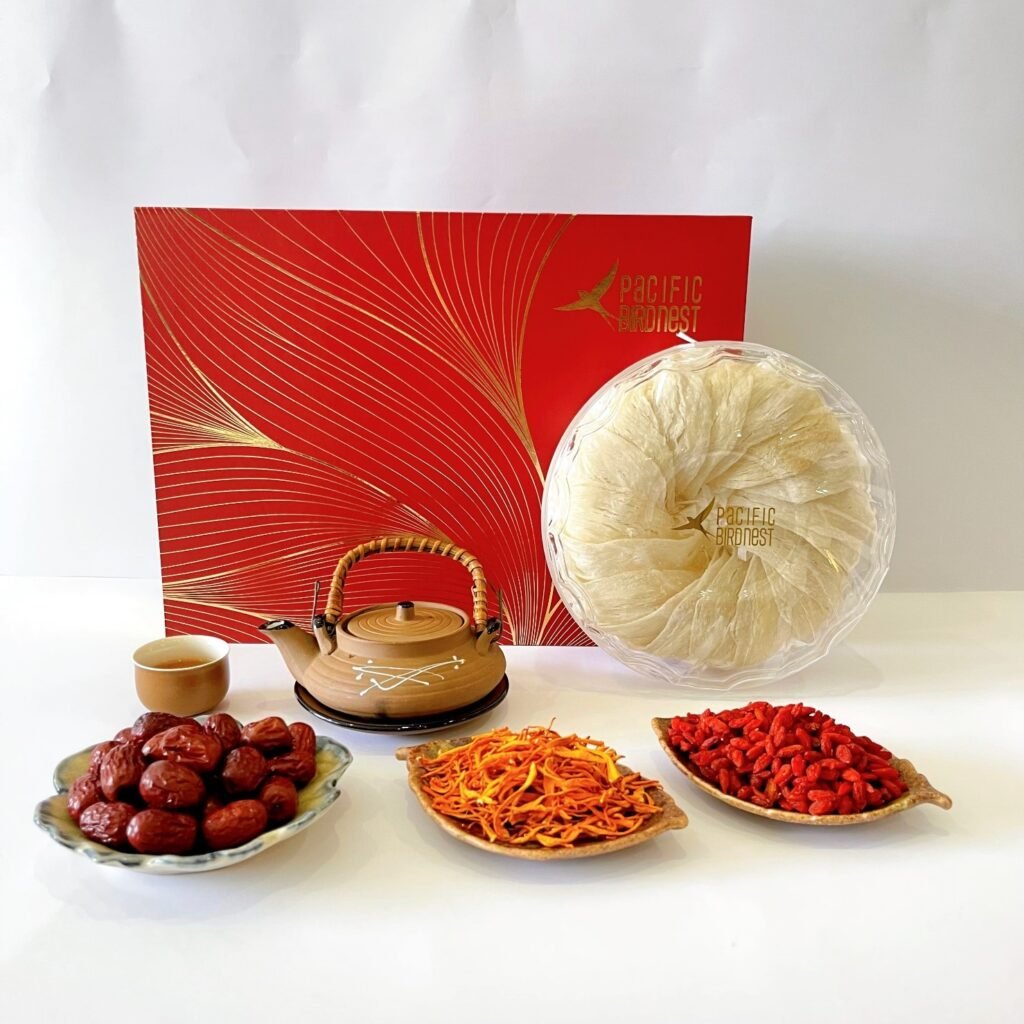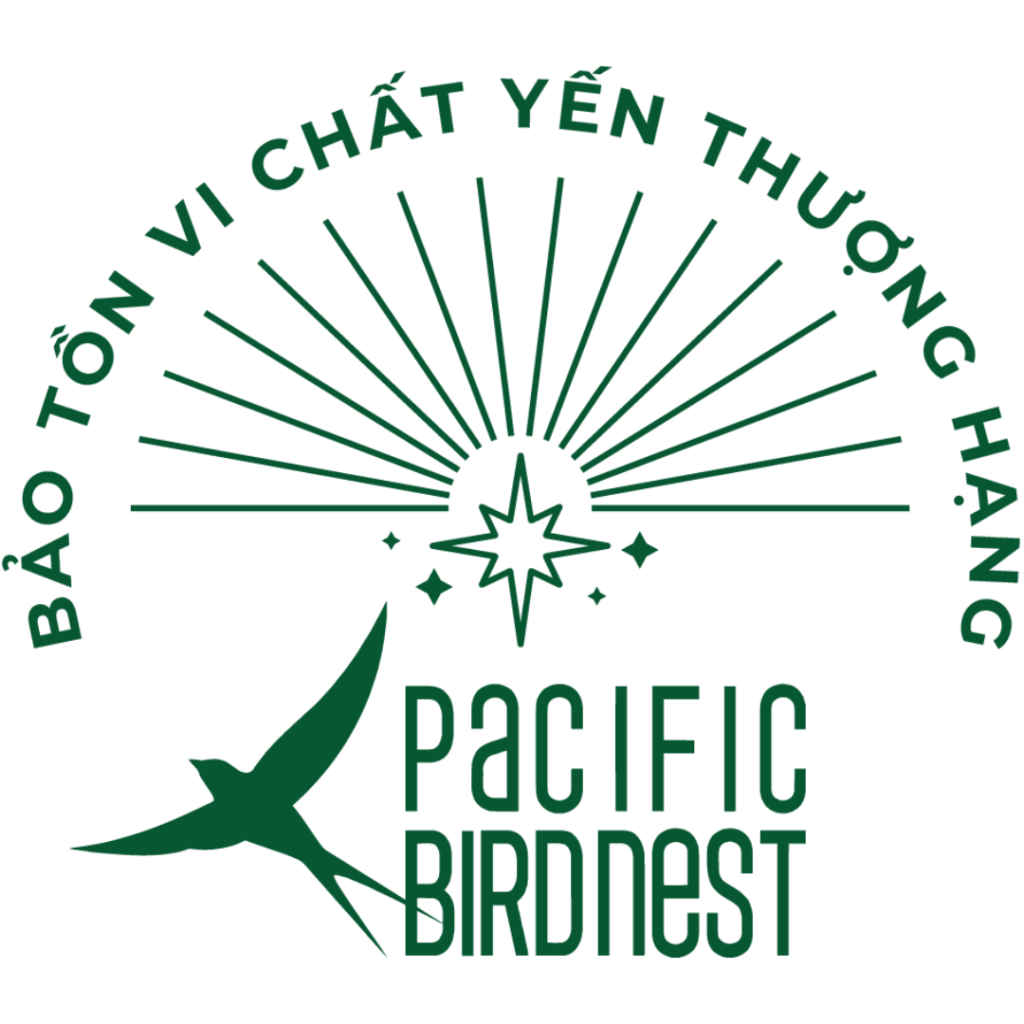Blog
Bird’s Nest – A Natural Tonic for Post-Surgery Recovery
| Nutritional Component | Content |
|
|
| Protein | 50 – 60% | Replenishes and restores energy to tissues depleted during surgery, supporting overall recovery and regeneration. | |
| Proline | 5.27% | Promotes the formation of new tissues, aiding in recovery at the cellular level. | |
| Acid aspartic | 4.69% | ||
| Valine | 4.12% | Stimulates new tissue synthesis, accelerating the healing process. | |
| Isoleucine | 2.04% | Provides energy by enhancing glucose production, supporting metabolic recovery. | |
| Phenylalanine | 4.5% | Enhances appetite, helping patients regain nutritional intake post-operation. | |
| Histidine | 2.09% | Supports tissue development and immune function, contributing to improved overall health. | |
| Tyrosine | 3.58% | Aids in the recovery of red blood cell function and supports neurological balance post-surgery. | |
| Lysine | 1.75% | Alleviates stress, supports calcium absorption, and enhances collagen synthesis – key for effective wound healing. | |
| Threonine | 2.69% | Strengthens the immune system and supports tissue repair and recovery. | |
| N-acetylneuraminic acid | 8.60% | Enhances immune defense and helps prevent viral and bacterial infections. | |
| Iron | 27.90% | Supports the regeneration of red blood cells, helping to combat fatigue after surgery. | |
| Copper | 5.87% | Reduces the risk of deficiency and helps protect against postoperative infections. | |
| Canxi | 0.76% | Minimizes fatigue by supporting cardiac function and muscular activity during recovery. | |
| Zinc | 1.88% | Boosts immune function, reduces inflammation, and accelerates wound healing |
Should Patients Consume Bird’s Nest After Surgery?
According to nutrition experts, edible bird’s nest is a highly recommended supplement for post-operative patients. It is rich in essential nutrients that help boost the immune system, reduce inflammation, accelerate wound healing, and stimulate appetite. When used in the right amount and at the proper time, bird’s nest can significantly support the recovery process.

Bird’s nest helps patients recover faster and regain strength after surgery.
1. Why Is Bird’s Nest Beneficial for Post-Operative Health?
Bird’s nest contains 50–60% protein, over 18 amino acids (including rare ones such as Proline, Lysine, Tyrosine), and more than 30 trace minerals like iron, copper, calcium, and zinc—all vital for tissue repair and overall recovery.
Key Health Benefits for Post-Surgical Patients
1. Accelerates Wound Healing
The high protein content helps replenish lost energy and stimulates cell regeneration. Nutrients such as Proline, Aspartic acid, Valine, and Zinc promote rapid tissue growth, shortening recovery time and helping wounds heal from within.
2. Strengthens the Immune System
Threonine and N-acetylneuraminic acid (sialic acid) enhance the production of B cells—a type of white blood cell responsible for antibody creation—thus helping the body defend itself against infection during the healing period.
3. Reduces Inflammation & Prevents Infection
Bird’s nest is rich in anti-inflammatory elements such as Copper, Calcium, and Zinc. These work alongside amino acids to help the body fight off bacteria and viruses, reducing the risk of post-surgical infection.
4. Stimulates Appetite & Supports Digestion
Threonine eases digestive discomfort, while Phenylalanine and Cystine gently stimulate the taste buds and support the stomach lining. With its light and pleasant flavor, bird’s nest makes eating more enjoyable and nutrient absorption more effective.
5. Fades Surgical Scars
Amino acids like Threonine and Lysine are precursors for collagen and elastin—key compounds in skin regeneration. Consuming bird’s nest regularly may reduce scarring and support skin repair from surgical wounds.
2. How to Consume Bird’s Nest Correctly After Surgery
Suggested Dosage: 5 grams per day, taken every other day
Ideal Timing: During light meals, especially in the early morning or before bedtime
Important Notes:
– Do not consume bird’s nests and medications at the same time to avoid nutrient-drug interaction.
– Avoid tea when consuming bird’s nests, as tannins in tea may reduce its nutritional value.
– Avoid spicy and oily foods with bird’s nests to preserve its healing properties.
3. Recommended Bird’s Nest Dishes by Recovery Stage
- Stage 1 (Days 1–2 Post-Surgery): At this stage, bird’s nests should be avoided. Patients should focus on hydration, electrolyte replacement, and basic carbohydrates (glucose) to maintain energy, as advised by healthcare professionals.
- Stage 2 (Days 3–5 Post-Surgery): Gradually reintroduce protein and nutrients while reducing IV fluids. Recommended dishes include:
+ Bird’s Nest with Rock Sugar: Provides quick energy and soothes the digestive system.
+ Bird’s Nest with Ginseng: Combines immunity-boosting ginseng with amino acids to strengthen resistance.
+ Bird’s Nest with Fresh Milk: Rich in vitamins A and K2, this dish helps build a strong immune defense and protects against infection.
- Recovery Stage (From Day 6 Onwards): As the patient’s appetite returns and wound pain decreases, more nutrient-dense dishes can be introduced:
+ Bird’s Nest with Lotus Seeds or Red Dates: Supports gut health and helps the body better absorb nutrients.
+ Bird’s Nest Porridge: Light and easy to digest, it promotes appetite and nutrient intake.
+ Bird’s Nest Soup: A warm, gentle option that supports digestion and relieves gastrointestinal stress.
+ Bird’s Nest Stewed with Black Chicken: Boosts protein levels and stimulates blood circulation, speeding up recovery.
+ Bird’s Nest Stewed with Pigeon: A traditional remedy known to nourish blood, improve digestion, and help the patient regain strength.



Pingback: Benefits of Bird’s Nest for the Elderly - Pacific Bird Nest